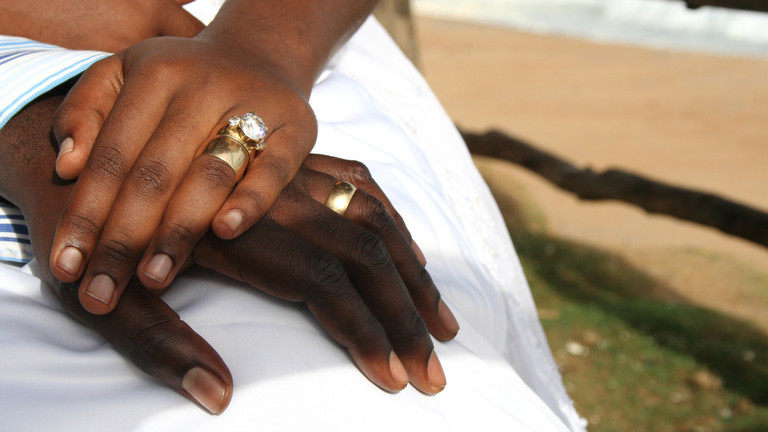
Johannesburg — In a landmark judgment hailed as a victory for gender equality, South Africa’s Constitutional Court has ruled that husbands may legally adopt their wives’ surnames—a right previously denied under civil registration laws.
Justice Leona Theron, delivering the decision on Thursday, declared that the existing framework imposed “outdated colonial values” and reinforced patriarchal assumptions. She described the tradition of women taking their husbands’ surnames as a “colonial import rooted in patriarchal norms”, where women were historically viewed as legally inferior and expected to assume their husband’s identity.
The court found that denying men the same naming rights constituted unfair gender-based discrimination, violating constitutional protections. The ruling suspends the declaration of invalidity for 24 months, giving Parliament time to amend the Births and Deaths Registration Act or introduce a new framework.
The Couples Who Challenged the Law
The judgment follows a legal challenge brought by two couples:
- Jana Jordaan and Henry Van Der Merwe, who had agreed that Henry would take Jana’s surname to honor her late parents. The Department of Home Affairs blocked the request.
- Jess Donnelly-Bornman and Andreas Nicolas Bornman, who sought to hyphenate Andreas’s surname to include Jess’s. While Jess was allowed to change hers, Andreas was denied the same right.
Their cases highlighted the systemic bias embedded in South Africa’s civil registration system, which permitted women to change surnames freely but excluded men from doing so.
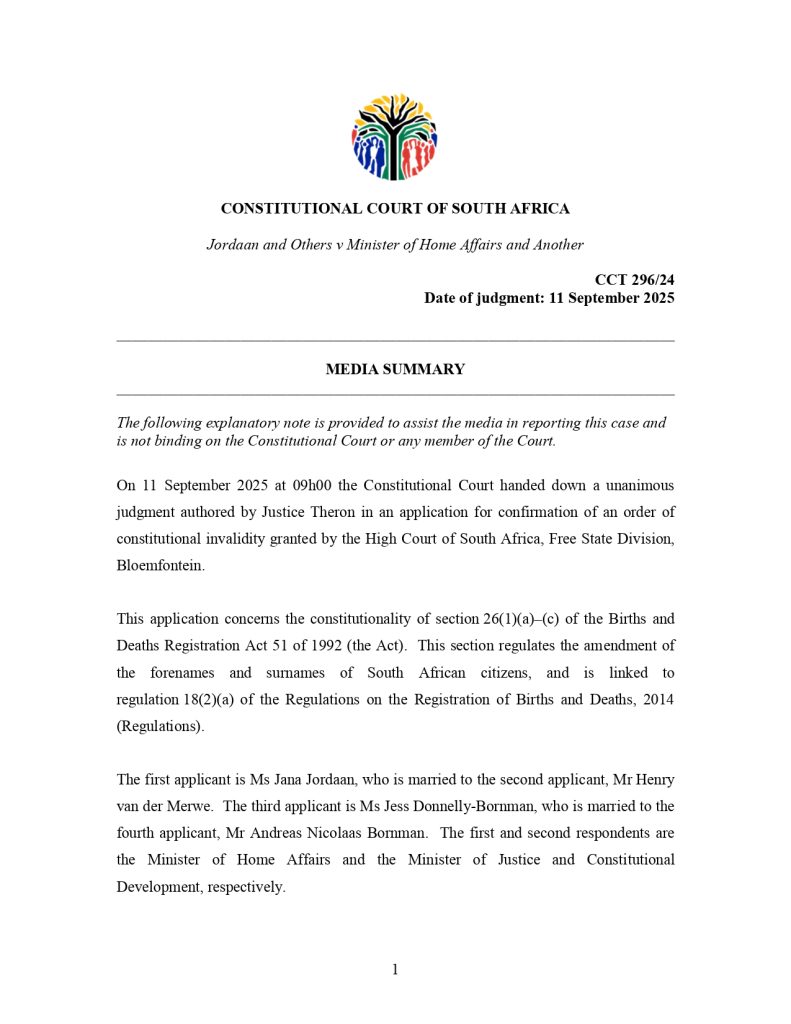
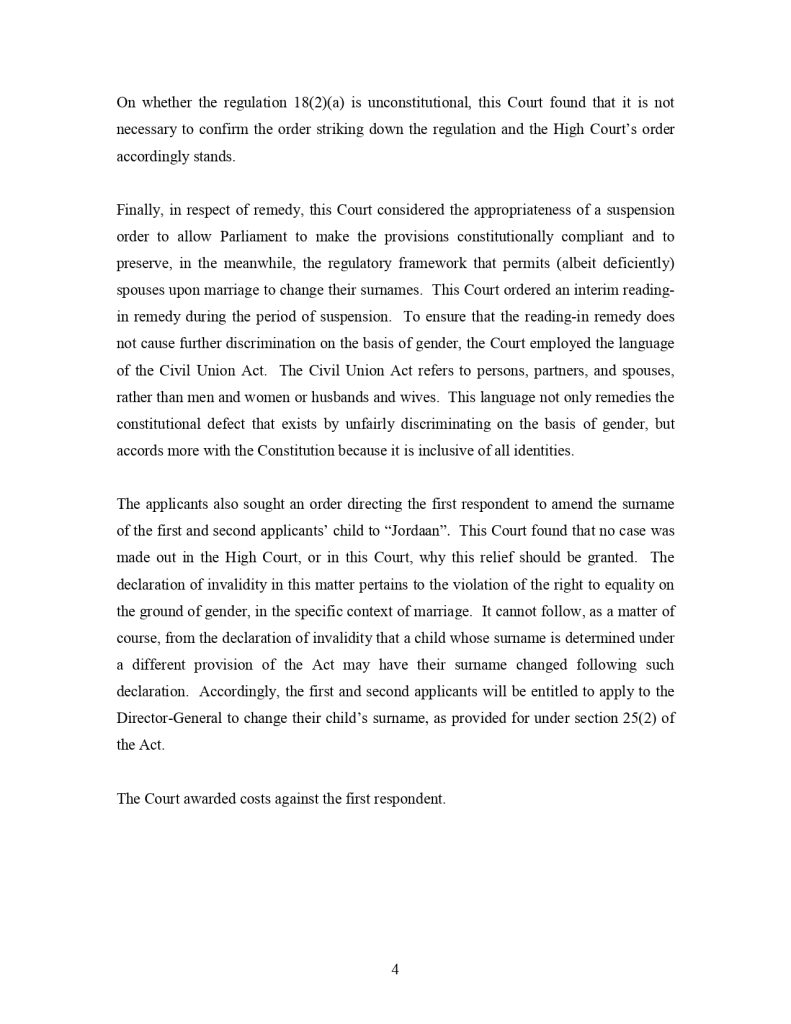
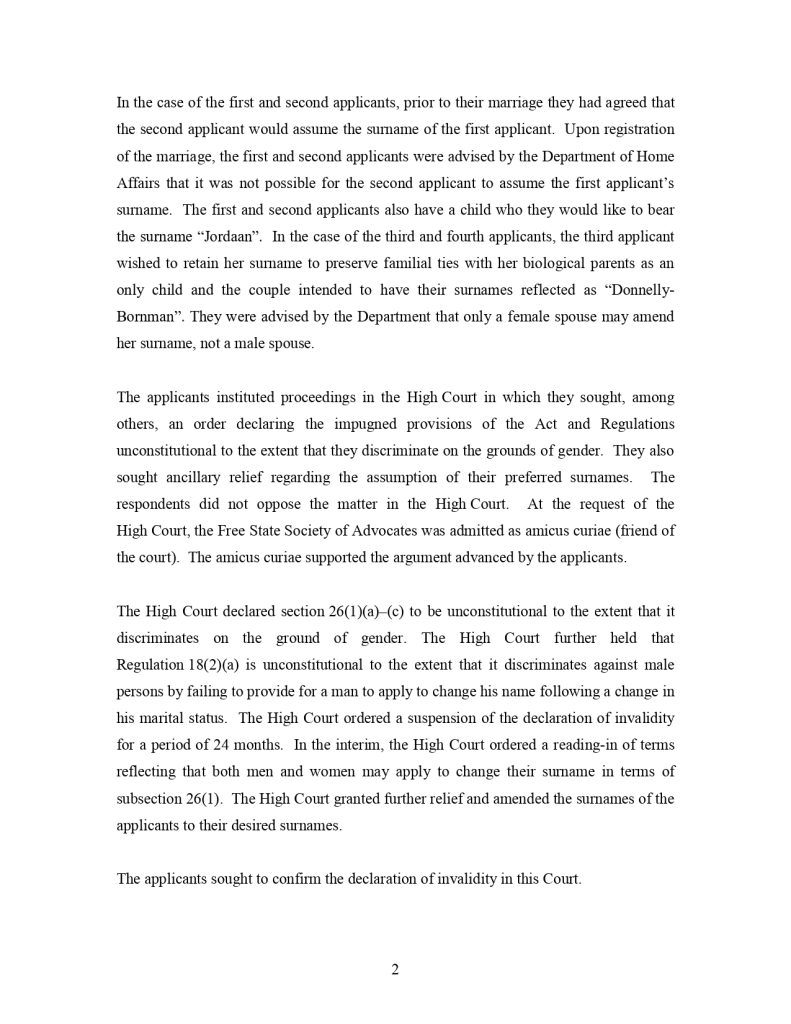
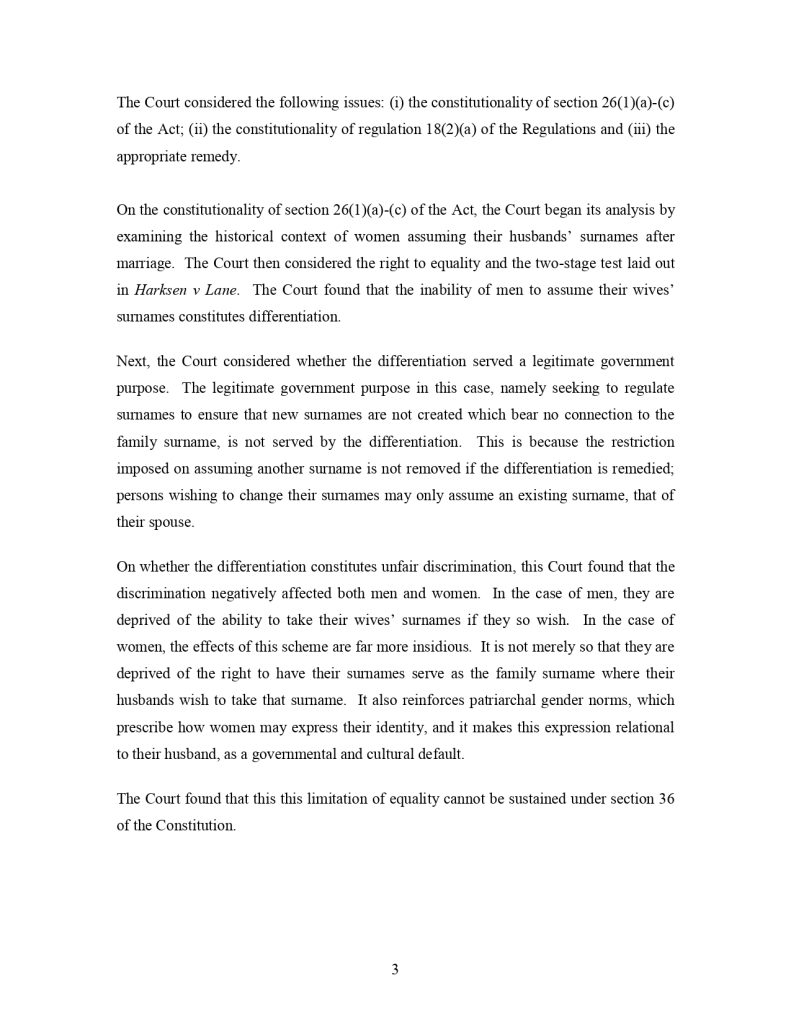
Naming Laws Across Africa
South Africa’s ruling brings its legal framework closer to those of other African nations:
- Kenya and Nigeria allow adults to change their names for any reason via deed poll, a gender-neutral process.
- Zimbabwe requires a notarial deed and gazette publication for name changes.
- In North Africa—including Tunisia, Morocco, and Egypt—surname changes through marriage are not permitted. Spouses must retain their birth names, and any alteration requires a separate judicial or administrative procedure.
A Step Toward Equality
The Constitutional Court’s decision marks a significant shift in South African family law, affirming that marriage is a union of equals and that naming conventions should reflect personal choice—not inherited colonial norms.
While Parliament works to formalize the changes, couples may now apply for surname changes under an interim, gender-neutral remedy.